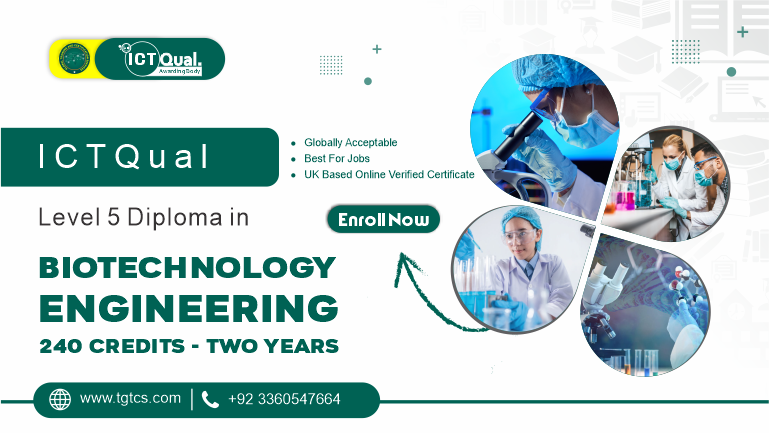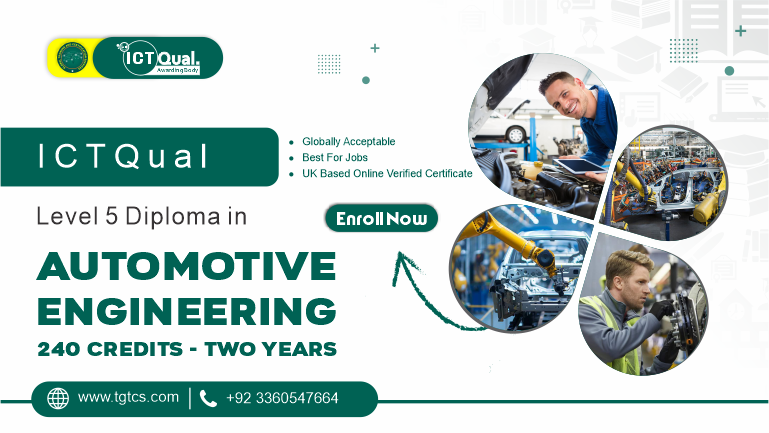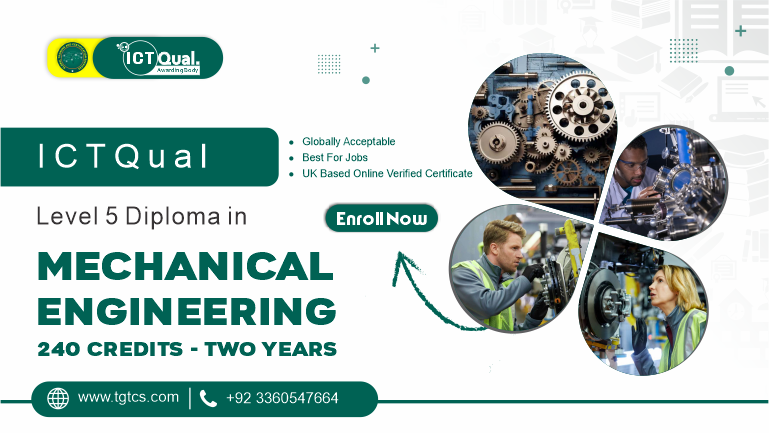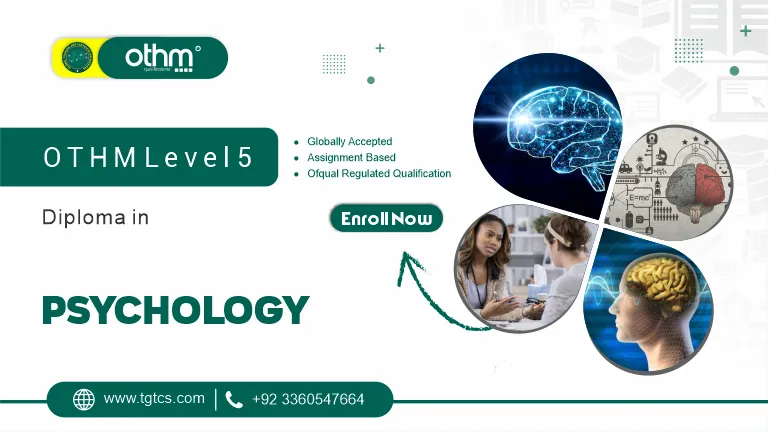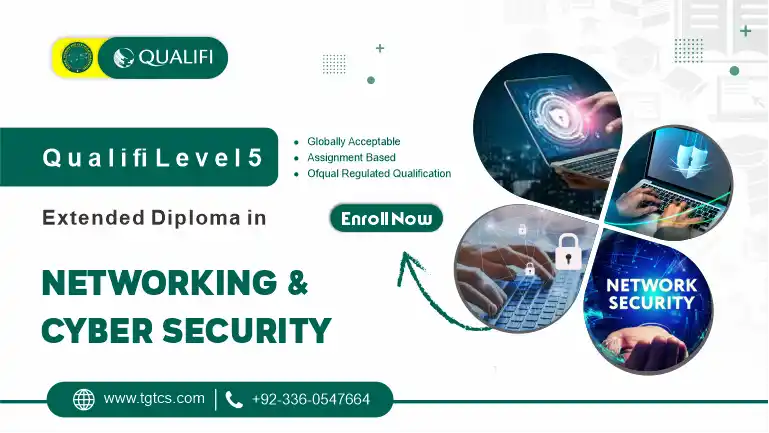ICTQual Level 5 Diploma in Biotechnology Engineering 240 Credits – Two Years
The ICTQual Level 5 Diploma in Biotechnology Engineering (240 Credits – Two Years) is an advanced qualification designed to equip students with the essential skills and knowledge needed to excel in the dynamic field of biotechnology engineering. This program combines core engineering principles with specialized biotechnology topics, preparing graduates for diverse roles in industries such as pharmaceuticals, healthcare, agriculture, and environmental management.
If you’re passionate about biotechnology and engineering, this diploma offers the perfect pathway to advanced careers and further education opportunities. In this blog post, we’ll explore the key benefits, learning outcomes, and career opportunities associated with the ICTQual Level 5 Diploma in Biotechnology Engineering.
The ICTQual Level 5 Diploma in Biotechnology Engineering offers a dynamic and comprehensive approach to biotechnology and engineering. By combining theoretical knowledge with practical applications, it equips graduates with the skills necessary to make a significant impact in the biotechnology industry. Whether you aim to enter the workforce directly or pursue further education, this diploma provides the foundation for a successful and rewarding career in biotechnology engineering.
If you’re ready to take the next step in your education and career, the ICTQual Level 5 Diploma in Biotechnology Engineering is the perfect choice. With its focus on cutting-edge biotechnological advancements, practical experience, and global career opportunities, this diploma opens doors to a wide range of exciting and impactful careers.
The Global Training and Certification Services (TGTCS) is Directly Approved Training Centre of ICTQual
The ICTQual Level 5 Diploma in Biotechnology Engineering (240 Credits – Two Years) provides a comprehensive and practical education for individuals interested in pursuing a career in the rapidly evolving field of biotechnology. This two-year program combines fundamental engineering principles with specialized biotechnology topics, preparing graduates to work in industries such as pharmaceuticals, healthcare, agriculture, and environmental management.
Students will gain a deep understanding of core subjects, including bioprocessing, genetic engineering, biomaterials, and microbial biotechnology, as well as advanced topics like biotechnology for healthcare, industrial biotechnology, and sustainable development. The curriculum emphasizes hands-on experience, technical communication, and problem-solving skills, preparing graduates for real-world challenges in the biotechnology sector.
Upon completion, students are equipped with the knowledge and practical skills to pursue a variety of career paths, including roles in biotechnology R&D, bioprocess engineering, environmental biotechnology, and agriculture, as well as opportunities for further education in biotechnology and related fields. The diploma also provides a strong foundation for professional certification and global career opportunities, making it a valuable qualification for those seeking to make a significant impact in biotechnology engineering.
Mandatory Units
The Units of Level 5 Diploma in Biotechnology Engineering 240 Credits-Two Years are as :
Year 1:
- Introduction to Biotechnology Engineering
- Molecular Biology and Genetics
- Principles of Biochemistry
- Cell Biology and Biotechnology Applications
- Bioinformatics and Data Analysis
- Bioprocessing Techniques and Technologies
- Genetic Engineering and Recombinant DNA Technology
- Biotechnology Equipment and Instrumentation
- Laboratory Safety and Quality Control
- Microbiology and Biotechnology
- Plant and Animal Biotechnology
- Industrial Biotechnology and Biomanufacturing
Year 2:
- Biostatistics and Experimental Design
- Environmental Biotechnology
- Bioethics and Regulatory Considerations
- Biochemical Engineering Principles
- Protein Engineering and Expression Systems
- Fermentation Technology in Biotechnology
- Bioprocess Control and Optimization
- Biotechnology in Drug Development
- Biotechnology in Agriculture and Food Production
- Biotechnology in Waste Management
- Research and Development in Biotechnology
- Professional Practice and Career Development in Biotechnology
Year 1 Learning Outcomes:
- Introduction to Biotechnology Engineering
- Understand the key concepts and applications of biotechnology engineering in diverse industries.
- Evaluate the role of biotechnology in addressing global challenges, including healthcare, agriculture, and environmental sustainability.
- Molecular Biology and Genetics
- Gain a thorough understanding of molecular biology principles and genetic mechanisms.
- Analyze techniques such as gene cloning, PCR, and sequencing for manipulating genetic material.
- Principles of Biochemistry
- Learn essential biochemical pathways and molecular interactions that drive biotechnological processes.
- Apply biochemistry knowledge to solve challenges in biotechnology-related fields.
- Cell Biology and Biotechnology Applications
- Explore cell structure and function and their relevance to biotechnological applications.
- Assess how cell biology influences biotechnological processes like tissue engineering and cell culture.
- Bioinformatics and Data Analysis
- Gain proficiency in using bioinformatics tools to analyze biological data.
- Develop the skills to interpret large-scale genetic and proteomic data sets.
- Bioprocessing Techniques and Technologies
- Understand key bioprocessing techniques such as fermentation and cell culture.
- Analyze how these processes can be optimized for industrial applications.
- Genetic Engineering and Recombinant DNA Technology
- Learn genetic modification techniques, focusing on recombinant DNA technology.
- Evaluate the ethical, regulatory, and practical implications of genetic engineering.
- Biotechnology Equipment and Instrumentation
- Develop skills in using and maintaining essential biotechnology lab equipment.
- Understand the role of instrumentation in research and industrial biotechnology settings.
- Laboratory Safety and Quality Control
- Learn principles of laboratory safety, good laboratory practices, and quality control in biotechnology.
- Understand the importance of safety standards to ensure integrity in research and production.
- Microbiology and Biotechnology
- Explore the connection between microbiology and biotechnology, including microbial fermentation and pathogen control.
- Analyze the role of microorganisms in industrial biotechnology.
- Plant and Animal Biotechnology
- Study biotechnology applications in plant and animal genetics, including gene editing and cloning.
- Assess the impact of biotechnology on agriculture and medicine.
- Industrial Biotechnology and Biomanufacturing
- Understand how biotechnology is used in industrial manufacturing processes such as biofuels, biochemicals, and pharmaceuticals.
- Evaluate the economic and environmental benefits of industrial biotechnology.
Year 2 Learning Outcomes:
- Biostatistics and Experimental Design
- Learn the fundamentals of biostatistics and experimental design to analyze research data.
- Apply statistical methods to validate results in biotechnological research.
- Environmental Biotechnology
- Understand the applications of biotechnology in environmental management, including waste treatment and bioremediation.
- Evaluate biotechnological solutions to environmental challenges.
- Bioethics and Regulatory Considerations
- Explore the ethical, legal, and regulatory issues surrounding biotechnological research and applications.
- Analyze debates on genetic modification, patenting, and ethical concerns in biotechnology.
- Biochemical Engineering Principles
- Learn about biochemical engineering principles, including enzyme kinetics and bioreactor design.
- Apply engineering concepts to optimize biotechnological production processes.
- Protein Engineering and Expression Systems
- Gain knowledge in protein engineering techniques for creating proteins for specific applications.
- Evaluate various expression systems in biotechnology, including bacterial, yeast, and mammalian cells.
- Fermentation Technology in Biotechnology
- Understand fermentation principles and applications in biotechnology.
- Evaluate fermentation methods used in the production of biofuels, pharmaceuticals, and bioproducts.
- Bioprocess Control and Optimization
- Learn techniques to monitor and optimize biotechnological processes.
- Apply process modeling and control strategies to improve efficiency and product quality.
- Biotechnology in Drug Development
- Understand biotechnology’s role in drug discovery and development.
- Analyze how biotechnology can lead to new therapies for diseases.
- Biotechnology in Agriculture and Food Production
- Evaluate biotechnology’s impact on agriculture and food production systems.
- Analyze the benefits and challenges of genetically modified crops and animal products.
- Biotechnology in Waste Management
- Study the use of biotechnology in waste management, including bioremediation and waste-to-energy processes.
- Understand the environmental and economic advantages of biotechnology-based waste management.
- Research and Development in Biotechnology
- Gain insight into the R&D process in biotechnology from concept to commercialization.
- Develop the skills to plan, execute, and evaluate biotechnological research projects.
- Professional Practice and Career Development in Biotechnology
- Prepare for professional practice in biotechnology by developing career planning, communication, and leadership skills.
- Understand ethical responsibilities and industry standards in the biotechnology profession.
Comprehensive Knowledge and Skills in Biotechnology
The ICTQual Level 5 Diploma in Biotechnology Engineering equips students with in-depth knowledge across various key biotechnology fields, including molecular biology, genetic engineering, bioprocessing, and bioinformatics. Graduates will be proficient in the fundamental principles and applications needed to solve real-world challenges in industries such as healthcare, agriculture, and environmental sustainability.
Hands-On Practical Experience
The course emphasizes practical laboratory skills, enabling students to work with essential biotechnology equipment, adhere to safety standards, and engage in biotechnological processes like fermentation and cell culture. This hands-on experience ensures graduates are ready for real-world biotechnology applications in industrial settings.
Industry-Relevant Curriculum
Students gain exposure to critical biotechnology areas such as biomanufacturing, protein engineering, and environmental biotechnology. This prepares them to address emerging challenges in fields like drug development, food production, waste management, and renewable energy.
Opportunities in a Growing Industry
The biotechnology sector is rapidly expanding, offering various career paths in research, development, and industrial applications. The diploma opens doors to roles in pharmaceutical companies, biotech firms, research labs, and sustainable energy sectors.
Enhanced Career Prospects
Graduates of this program are well-equipped to pursue diverse career paths, including roles in biotechnology research, industrial biotechnology, drug development, and environmental consulting. The diploma also lays the foundation for further academic qualifications or specialized certifications, making it a valuable credential for advancing your career in biotechnology.
Pathway to Advanced Studies
The ICTQual Level 5 Diploma serves as a stepping stone for further education, allowing graduates to pursue higher-level qualifications or certifications in biotechnology and related fields. It is an ideal progression route for those wishing to deepen their expertise and gain advanced knowledge in the field.
Focus on Sustainability and Ethical Practices
The course emphasizes biotechnology’s role in solving global sustainability challenges, from improving agricultural practices to developing eco-friendly waste management solutions. Students are also trained in bioethics and regulatory considerations, ensuring they understand the ethical implications and legal frameworks surrounding biotechnological innovations.
Global Recognition and Opportunities
The diploma is recognized globally, providing students with the credentials to pursue opportunities both in their home country and internationally. Biotechnology is a universal field with a growing demand for skilled professionals across the globe.
Development of Professional Skills
Beyond technical expertise, students develop essential soft skills, including critical thinking, problem-solving, and effective communication. These skills are crucial for thriving in interdisciplinary biotechnology teams and delivering high-quality work in any professional setting.
Contribute to Cutting-Edge Innovations
By mastering biotechnology engineering techniques, graduates are empowered to make meaningful contributions to the development of innovative solutions that address some of the world’s most pressing issues, such as healthcare advancements, environmental conservation, and sustainable agriculture.
The ideal learner for the ICTQual Level 5 Diploma in Biotechnology Engineering is someone with a keen interest in the intersection of biology, engineering, and technology. This learner is typically motivated by a desire to understand and solve real-world problems in areas such as healthcare, environmental sustainability, and agriculture. Here’s a breakdown of the key characteristics of the ideal learner:
- Strong Background in Science
Ideal candidates have a solid foundation in science, particularly biology, chemistry, and mathematics. This background provides a strong base for understanding complex biotechnology concepts such as molecular biology, genetic engineering, and biochemistry. - Interest in Biotechnology and Engineering
The learner is passionate about biotechnology and its applications in various industries, including pharmaceuticals, agriculture, and environmental management. They are excited by the potential of biotechnology to drive innovation and address global challenges like climate change, sustainable agriculture, and healthcare. - Analytical Thinker
The ideal learner enjoys solving problems and applying analytical skills to understand biological systems and engineering processes. They are comfortable with data analysis, using bioinformatics tools, and working with laboratory equipment to test hypotheses and solve real-world biotechnology challenges. - Career-Focused
This learner is eager to enter the biotechnology industry and is looking for a comprehensive, industry-relevant qualification. They are motivated to build a strong career in fields such as biomanufacturing, drug development, environmental biotechnology, or bioengineering. - Curious and Open to Innovation
The ideal learner is curious about the latest advancements in biotechnology and is eager to stay updated with emerging technologies like gene editing, protein engineering, and fermentation technologies. They are motivated to contribute to innovative solutions in industries such as pharmaceuticals, food production, and renewable energy. - Detail-Oriented and Focused on Safety
Biotechnology engineering requires a high level of attention to detail, especially when working in laboratories and industrial settings. The ideal learner values laboratory safety and adheres to safety protocols while maintaining a commitment to producing high-quality, reproducible results. - Ethically-Minded
The ideal learner is aware of the ethical considerations in biotechnology, such as the implications of genetic modification and the impact of biotechnological innovations on society and the environment. They are interested in contributing to ethical and sustainable biotechnology practices. - Ready for a Rigorous Academic Journey
The learner should be prepared for the academic rigor of a two-year, 240-credit program. This includes balancing theoretical knowledge with practical skills, conducting research, and completing projects. They should have the discipline and commitment to succeed in a demanding course structure. - Aspirations for Further Education or Professional Certification
The ideal learner sees the ICTQual Level 5 Diploma as a stepping stone for further education or professional certification. They may aim to pursue advanced studies or specialize in areas like bioinformatics, industrial biotechnology, or molecular biology. - Collaborative and Team-Oriented
Biotechnology often involves interdisciplinary teams working together to solve complex challenges. The ideal learner should be comfortable working in teams, communicating effectively, and contributing to collaborative research and development projects in biotechnology.
This course is perfect for individuals who are not only passionate about biotechnology but also eager to engage with its practical applications, solve pressing global issues, and build a rewarding career in the dynamic field of biotechnology engineering.
Upon successfully completing the ICTQual Level 5 Diploma in Biotechnology Engineering, graduates can explore a wide range of progression opportunities to further enhance their career prospects in biotechnology and related fields. Some potential pathways include:
Industry Certifications
Graduates have the opportunity to pursue specialized, industry-recognized certifications in areas such as Good Manufacturing Practices (GMP), Clinical Research, or Bioinformatics. Earning these certifications can bolster professional credibility and equip graduates with specialized skills that are in high demand within the biotechnology sector.
Career Advancement and Workplace Experience
Graduates can enter the biotechnology workforce in roles such as Biotechnology Researcher, Bioprocess Engineer, Quality Control Analyst, or Biotechnology Consultant. With experience, there are excellent prospects for advancement into senior technical or managerial positions, including Project Manager, Research and Development (R&D) Director, or Product Development Specialist.
Entrepreneurship and Startups
With the knowledge and skills acquired during the course, graduates can choose to launch their own biotechnology businesses or consultancies. This could involve developing innovative biotechnological products, sustainable solutions for environmental challenges, or pioneering medical therapies.
Research and Development Roles
Graduates may also find opportunities in Research and Development (R&D) within pharmaceutical, agricultural, or environmental biotechnology industries. These positions offer the chance to work on cutting-edge technologies such as gene editing, sustainable bioprocessing, and biopharmaceuticals, contributing to the development of groundbreaking solutions.
Regulatory and Quality Assurance Careers
The biotechnology sector requires professionals who ensure regulatory compliance and quality assurance for products and processes. Graduates of this course can progress into roles like Regulatory Affairs Specialist or QA/QC Manager, where they will oversee the adherence to industry standards and regulations, ensuring the safety and efficacy of biotechnology products.
Completing the ICTQual Level 5 Diploma in Biotechnology Engineering provides graduates with the skills, knowledge, and qualifications to pursue further education or enter an exciting, evolving industry full of diverse career opportunities and long-term growth potential.
Course Overview
Course Level
Level 5
Course Units
24 Mandatory Units
Duration
Two year
